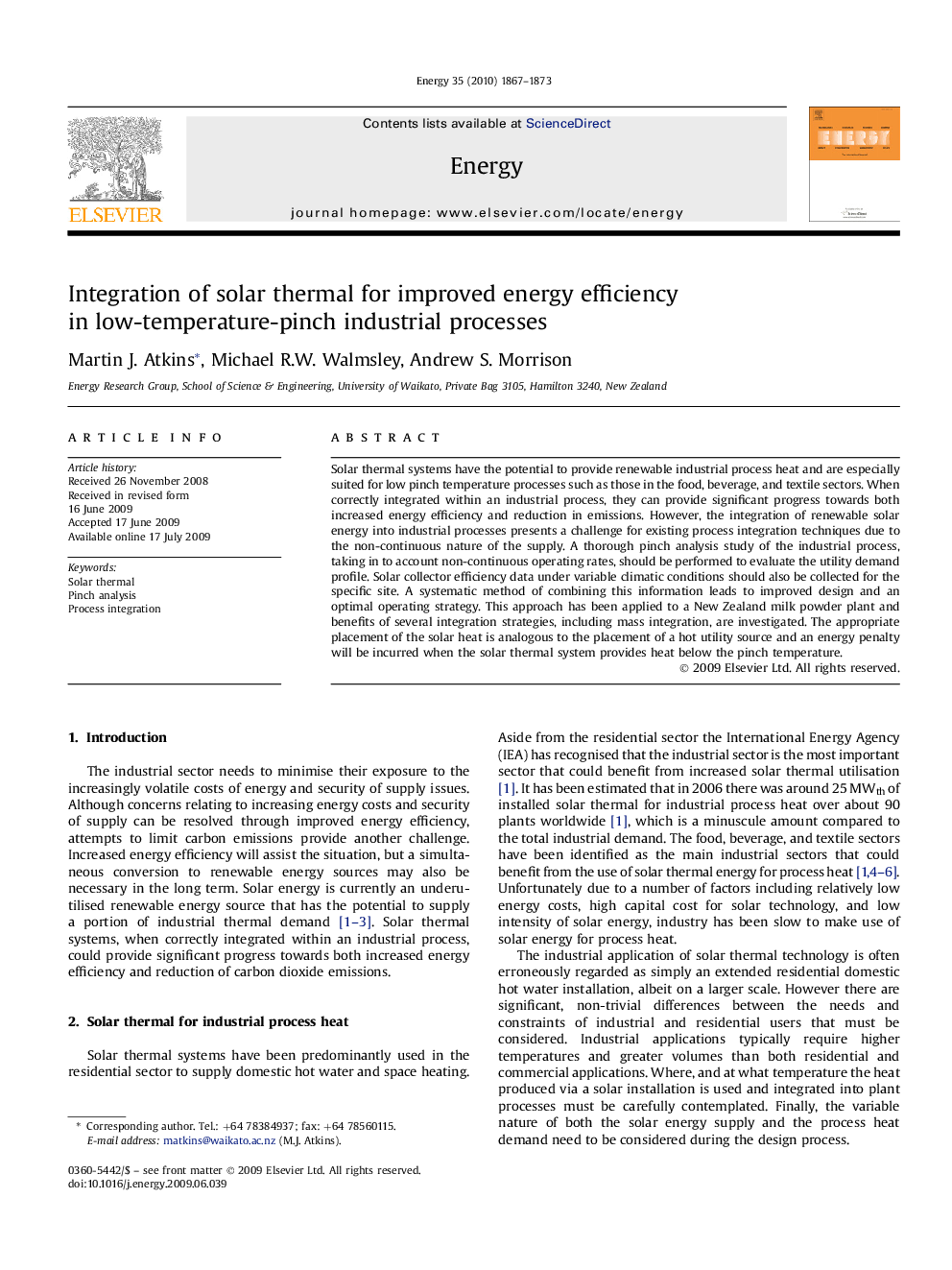| Article ID | Journal | Published Year | Pages | File Type |
|---|---|---|---|---|
| 1735511 | Energy | 2010 | 7 Pages |
Solar thermal systems have the potential to provide renewable industrial process heat and are especially suited for low pinch temperature processes such as those in the food, beverage, and textile sectors. When correctly integrated within an industrial process, they can provide significant progress towards both increased energy efficiency and reduction in emissions. However, the integration of renewable solar energy into industrial processes presents a challenge for existing process integration techniques due to the non-continuous nature of the supply. A thorough pinch analysis study of the industrial process, taking in to account non-continuous operating rates, should be performed to evaluate the utility demand profile. Solar collector efficiency data under variable climatic conditions should also be collected for the specific site. A systematic method of combining this information leads to improved design and an optimal operating strategy. This approach has been applied to a New Zealand milk powder plant and benefits of several integration strategies, including mass integration, are investigated. The appropriate placement of the solar heat is analogous to the placement of a hot utility source and an energy penalty will be incurred when the solar thermal system provides heat below the pinch temperature.
